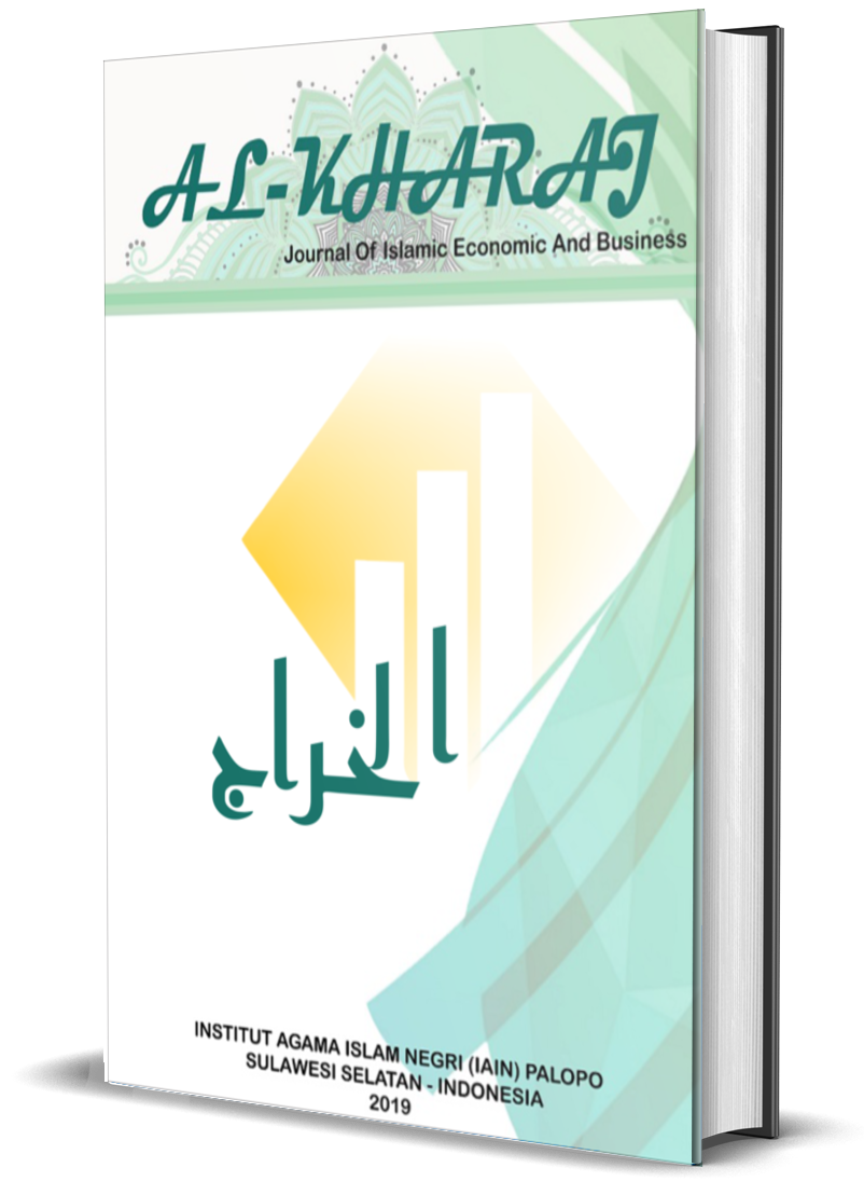Sharia Public Private Partnership: An Alternative Financing For Infrastructure Development In Indonesia
DOI:
https://doi.org/10.24256/kharaj.v7i4.7697Keywords:
Sharia Public-Private Partnership (Sharia PPP), Infrastructure Development Financing, Islamic FinancingAbstract
Infrastructure development in Indonesia requires diverse and sustainable sources of financing, because the Indonesian APBN/APBD is not sufficient to finance Indonesian infrastructure financing needs, so other alternative sources of financing are needed. The aim of this research is to examine the role of Sharia Public Private Partnership (Sharia PPP) as an alternative financing for infrastructure development in Indonesia. The research is qualitative research in the form of descriptive analysis through library research, literature and government policies/regulations. The research results show that regulatory the Sharia PPP has a legal basis and the government has provided support, facilities (by establishing financing and guarantee institutions) and incentives for PPP projects, however its implementation still faces obstacles in terms of institutional readiness, sharia financial literacy, sharia financing instruments, size Indonesia’s Islamic Bank asset as well as lack understanding of business entities and market players
References
A Short History of Public-Private Partnerships. (2025, June 1). Public Private Partnership Alliance.
Abdullah, M. T. (2020). Public Private Partnership Dalam Penyediaan Infrastruktur Pelayanan Publik: Pengalaman Indonesia dan India . Jurnal Ilmu Administrasi, 9(2), 102–114.
Amelia, E. B. (2023). Faktor-Faktor Kritis Penentu Kesuksesan Kerjasama Pemerintah dengan Badan Usaha (KPBU) Sektor Air Minum. Jurnal Litbang: Media Informasi Penelitian, Pengembangan dan IPTEK, 19(1), 57–72.
Arini, S. C. (2025, June 12). Butuh Rp 10.000 T Bangun Infrastruktur, Uang Negara Hanya Cukup 40%. Detikfinance.
Asian Development Bank. (n.d.). What are PPP’s?
Dina, Endah S, I., Apriliani, D., & Finaldin, T. (2024). Public-Private Partnership In Sharia-Based MSMES Empowerment In Indonesia. The Iqtishaduna International Conference 2024. https://iqtishaduna.com/proceedings/index.php/iicp
Direktorat Pengelolaan Dukungan Pemerintah dan Pembiayaan Infrastruktur. (n.d.). Kisah Sukses Proyek KPBU. Kementerian Keuangan Republik Indonesia .
DSN - MUI. (n.d.). Dewan Syariah Nasional Majelis Ulama Indonesia.
Friendica M, W., & Putra, A. (2022, October 7). Mewujudkan Mimpi KPBU Syariah dari Hulu ke Hilir. Komite Nasional Ekonomi Dan Keuangan Syariah .
Gunawan, I. (n.d.-a). Penerapan KPBU berbasis Syariah dalam rangka Pembiayaan Infrastruktur. Kementerian Keuangan Republik Indonesia.
Gunawan, I. (n.d.-b). Penerapan KPBU berbasis Syariah dalam rangka Pembiayaan Infrastruktur. Kementerian Keuangan Republik Indonesia.
Guseinnova, P. M. (2024, November). Meningkatkan Literasi dan Inklusi Keuangan Syariah Melalui SBSN Ritel. Kementerian Keuangan .
Hendratni, T. W., Harsono, H., & Soemarsono, D. (2021). Analisis Corporate Governance dalam Kemitraan Pemerintah dan Badan Usaha Bidang Infrastruktur. Jurnal Manajemen Strategi Dan Aplikasi Bisnis, 4(1), 199–206. https://doi.org/10.36407/jmsab.v4i1.327
Irwanugroho, H. (2019). Penjaminan Proyek Kerjasama Pemerintah Dengan Badan Usaha Melalui Badan Usaha Milik Negara Ditinjau Dari Hukum Jaminan. Jurnal Poros Hukum Padjadjaran, 1(1), 32–54.
Mujahidin, M., Imran, M., Sapa, N., Fasiha, F., Aisya, S., & Trimulato, T. (2025). Challenge of Waqf to the Social and Economic Welfare of Muslim Communities: A Comparative Analysis Between Countries. Jurnal Ilmiah Mizani: Wacana Hukum, Ekonomi Dan Keagamaan, 12(1), 168-184. doi:http://dx.doi.org/10.29300/mzn.v12i1.7765
Nurrahman, A., & Hartoyo, A. (2019, September 20). RSUD dr Zainoel Abidin Jadi Pilot Project KPBU Syariah. Komite Nasional Ekonomi Dan Keuangan Syariah.
Organisation For Economics Co-Operation And Development. (2008). Public-Private Partnerships In Pursuit of Risk Sharing And Value For Money. OECD Publications.
Peraturan Menteri Pekerjaan Umum dan Perumahan Rakyat Nomor 2 Tahun 2021 Tentang Tata Cara Pelaksanaan Kerja Sama Pemerintah Dengan Badan Usaha Dalam Penyediaan Infrastruktur, Pub. L. No. 2, Kementerian Pekerjaan Umum dan Perumahan Rakyat 1 (2021).
Public Private Partnership Resource Center. (2017). Public Private Partnership Reference Guide . World Bank.
Putri, N. C., & Putri, L. Y. (2020). ANALISIS PEMBIAYAAN NON-ANGGARAN PEMERINTAH DALAM MENDUKUNG PEMBANGUNAN INFRASTRUKTUR DI INDONESIA. Jurnal Infrastruktur, 6(2), 91–103.
Rose, N., & Wicaksono, M. A. (2025, May 15). Perkembangan Total Aset Keuangan Syariah: Momentum Awal Tahun 2025. Komite Nasional Ekonomi Dan Keuangan Syariah.
Sandy, K. F. (2024, December 7). KNEKS Luncurkan Panduan Badan Usaha Untuk Optimalisasi Pembiayaan Syariah. Komite Nasional Ekonomi Dan Keuangan Syariah.
Setiajatnika, E., Gunadi, T., & Nugraha, H. (2023). Skema Kerjasama Pemerintah Dengan Badan Usaha (KPBU) Dalam Penyediaan Infrastruktur Alat Penerangan Jalan (APJ). Jurnal Ilmiah Manajemen, 14(2), 317–332.
Suhendra, M. (2017). Penyediaan Infrastruktur Dengan Skema Kerjasama Pemerintah dan Badan Usaha (Public Private Partnership) di Indonesia. Jurnal Manajemen Keuangan Publik, 1(1), 41–46.
Undang-Undang Republik Indonesia Nomor 59 Tahun 2024 Tentang Rencana Pembangunan Jangka Panjang Nasional Tahun 2025-2045, 1 (2024).
Wirdayanti, Y. N., Firdausi, M. R. A., Mustofa, Moh. A. A., Mubarok, J., Sanrego, Y. D., Lathif, A. A., Supyadillah, A., Firmansyah, D., & Poernomo, P. (2024). Panduan Pelaksanaan KPBU Dengan Implementasi Prinsip Syariah. Direktorat Jasa Keuangan Syariah, Komite Nasional Ekonomi dan Keuangan Syariah.
Yusuf, M., & Wibowo, B. (2024). Pembiayaan Infrastruktur Dengan Skema Kerja Sama Pemerintah dan Badan Usaha Pada Proyek Preservasi Jalan Lintas Timur Sumatera Oleh PT Adhi Jalintim Riau. Jurnal Ekonomi & Ekonomi Syariah, 7(2), 2110–2120. https://doi.org/10.36778/jesya.v7i2.1713
Zed, M. (2014). Metode Penelitian Kepustakaan (3rd ed.). Yayasan Pustaka Obor Indonesia.
Downloads
Published
How to Cite
Issue
Section
Citation Check
License
Copyright (c) 2025 Arnoldy, Afried Lazuardi, Yulianti, Muhammad Ichwan Hamzah

This work is licensed under a Creative Commons Attribution-ShareAlike 4.0 International License.
Authors retain copyright and grant the journal right of first publication with the work simultaneously licensed under a Creative Commons Attribution-ShareAlike 4.0 International License. In line with the license, authors are allowed to share and adapt the material. In addition, the material must be given appropriate credit, provided with a link to the license, and indicated if changes were made. If authors remix, transform or build upon the material, authors must distribute their contributions under the same license as the original.









